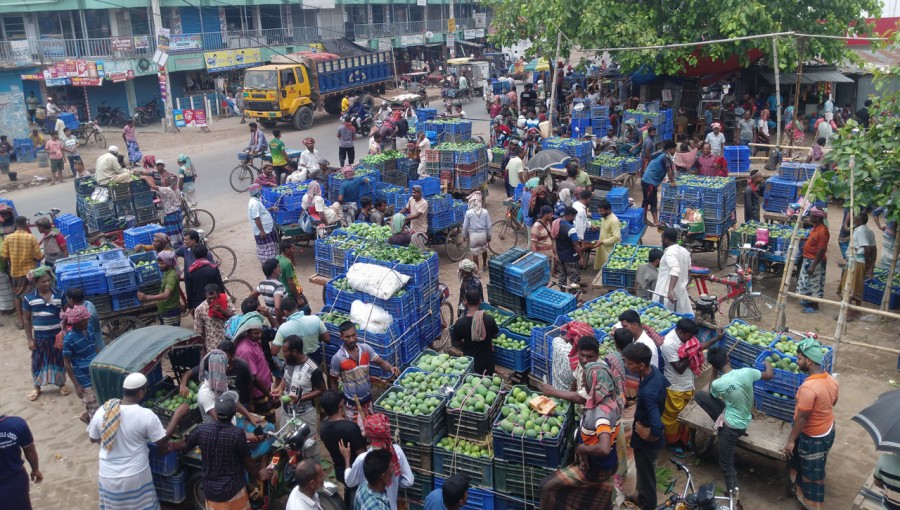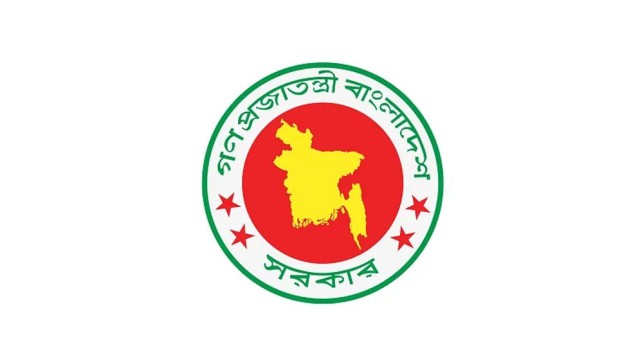The Baneshwar market in Puthia Upazila serves as the central hub for mango trading, providing employment opportunities for thousands of workers. Despite challenges, including reduced production and increased prices, mango trading continues, with expectations of further price hikes after Eid. Additionally, the article discusses the role of online trading and provides statistics on mango production in the region for the fiscal year 2023-24.
June 4, (V7N Rajshahi)- As an agricultural hub, Rajshahi, Chapainawabganj, and Naogaon are well-known districts. However, due to the intense heatwave, mango production in Rajshahi has decreased, leading to a surge in mango prices. Customers report that mango prices have increased by one and a half to double compared to last year.
The largest mango market in Rajshahi is situated in Baneshwar, Puthia Upazila. The market operates on Saturdays and Tuesdays each week, but mango trading continues throughout the week during the mango season. While mangoes were sold for millions at the beginning of the season, prices have risen to 10 crore taka at the end of the season in this market. This market provides employment opportunities for over 3,000 people. However, due to the reduced mango yield this year, work has declined.
On Monday (June 3), different varieties of mangoes were sold at different prices in Baneshwar Bazaar. Gopalbhog mangoes were sold at prices ranging from 3,000 to almost 3,000 taka per maund, Ranipasand at 3,200 taka, Lakshmanbhog at 1,700 taka, Khirsapat at around 3,000 taka, and Langra mangoes at prices ranging from two to two and a half thousand taka. The farmer Abu Hena mentioned that this year there has been a decrease in mango production compared to last year, which has significantly affected prices. The demand for mangoes in the market remains high, hence the substantial increase in prices. It is expected that prices may further rise after Eid.
This year, customers from Dhaka, Sylhet, and Chittagong have not arrived yet. They usually come through middlemen from Baneshwar Bazaar. They may visit the market after Eid. In the past years, mangoes were sold for 1 thousand taka per maund. This year, they are being sold for 2,500 taka per maund.
The mangoes in Baneshwar Bazaar have been rented out for 7.15 million taka. As the main market is large, it is placed on the road. However, this does not cause traffic problems, as precautions are taken to ensure smooth traffic flow.
Over 3,000 workers are employed in the mango trading centered in Rajshahi. They work on a temporary basis for a period of one and a half to two months. Each mango plot has around 15 to 20 laborers who perform various tasks, including picking mangoes, drying them in the air, packing them neatly in newspapers, loading them onto trucks, and transporting them. These workers are paid daily wages for their work. Additionally, each laborer receives 15 to 20 taka for every mango tray loaded onto the truck. The rent for each mango plot in the market is 10 taka.
Online mango trading occurs annually. However, this year, mango sales have not yet been initiated online. From the first week of June onwards, mango trading online is expected to commence, as stated by online trader Ariful Islam. He conducts online mango trading from Baneshwar Bazaar to various districts across the country each year.
It is noteworthy that in the fiscal year 2023-24, mango production in Rajshahi district amounted to 2,60,315 tons. This year, mangoes were cultivated in 19,602 hectares of land, with an average yield of 13.28 tons per hectare.
END/V7N/RAR/DK/































Comment: